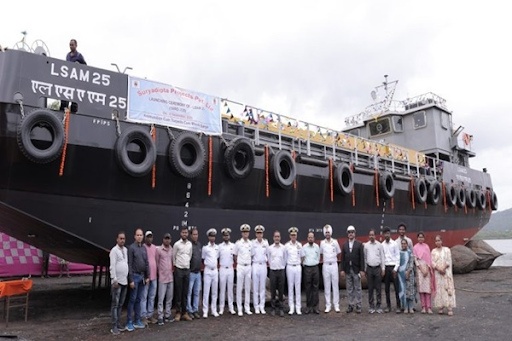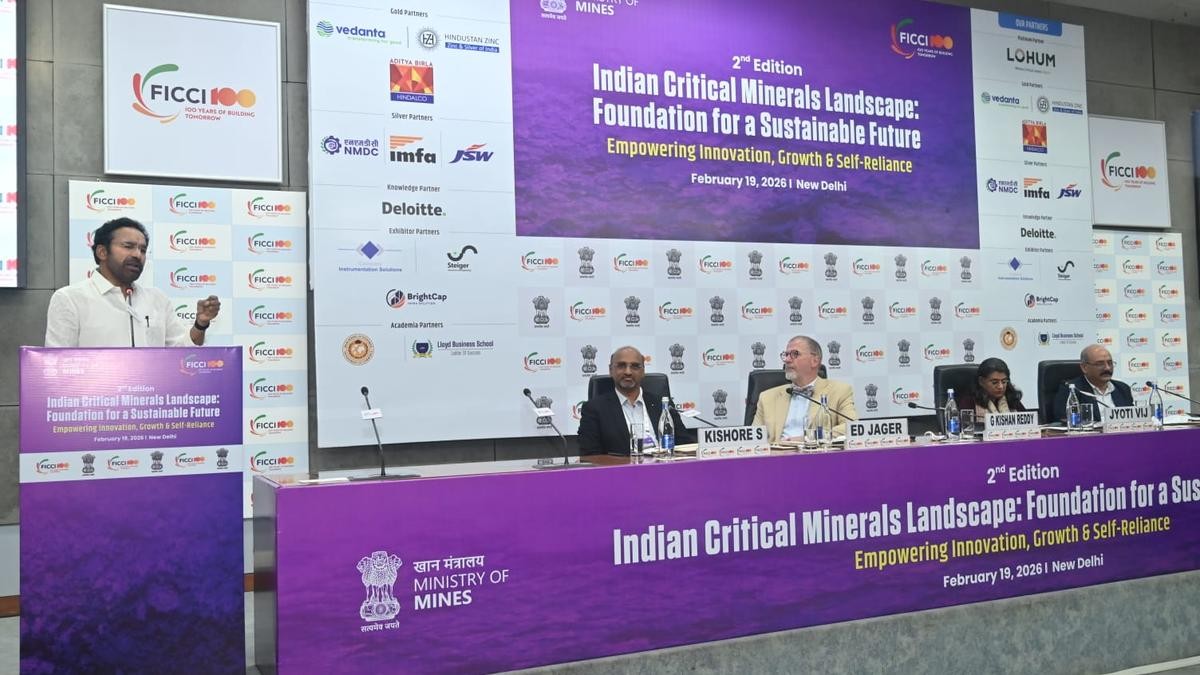



The iDEX-EdCIL partnership, under the ASPIRE program, is a step towards developing dual-use technology in India. It combines iDEX's defense innovation with EdCIL's educational technology expertise, aiming to build indigenous capabilities, address national challenges, and promote self-reliance, aligning with the 'Make in India' vision.

Copyright infringement not intended
Picture Courtesy: NEWSONAIR
Government signed a Memorandum of Understanding with EdCIL (India) Limited under the new ASPIRE (Accelerating Strategic Progress in Research and Education) program.
The ASPIRE Programme (Accelerating Strategic Progress in Research and Education) launched in September 2025, is a collaborative effort between Innovations for Defence Excellence-Defence Innovation Organisation (iDEX-DIO), under the Ministry of Defence, and EdCIL (India) Limited, under the Ministry of Education.
Objectives of ASPIRE
Promote Dual-Use Technologies: Develop technologies with applications in both defence (e.g., cybersecurity, AI) and civilian sectors (e.g., ed-tech platforms).
Strengthen Start-up Ecosystem: Engage start-ups, MSMEs, and innovators to create scalable solutions for national challenges.
Foster Collaboration: Combine iDEX’s defence expertise with EdCIL’s educational outreach to drive innovation.
Support Indigenous Innovation: Reduce dependence on foreign technology by promoting homegrown solutions in critical sectors.
Partnership Model: iDEX-DIO provides grants, mentorship, and access to defence challenges, while EdCIL offers expertise in educational infrastructure and networks.
Funding Support: ASPIRE leverages iDEX’s SPARK (Support for Prototype and Research Kickstart) framework, offering grants up to ₹1.5 crore for prototypes and up to ₹10 crore for high-potential projects under iDEX Prime.
Focus Areas: Targets technologies like AI, cybersecurity, and data analytics for dual-use applications, such as secure e-learning platforms or real-time defence communication systems.
Procurement Pathway: Successful innovations can be fast-tracked for procurement under the Defence Acquisition Procedure (DAP) 2020, ensuring practical application.
Boosts Atmanirbhar Bharat: By promoting indigenous technologies, ASPIRE reduces India’s dependence on imported defence and ed-tech solutions, strengthening national security and education.
Enhances Dual-Use Innovation: Technologies developed under ASPIRE, such as AI-based analytics, can secure military communications and improve personalized learning platforms.
Strengthens Start-up Ecosystem: With iDEX already supporting 400+ start-ups and MSMEs, ASPIRE expands this ecosystem to education, creating jobs and innovation hubs. (Source: PIB)
Global Competitiveness: The programme positions India as a leader in dual-use technologies, as seen in events like INDUS-X (India-US Defence Acceleration Ecosystem), where iDEX showcased innovations in AI and cybersecurity.
Addresses National Challenges: ASPIRE tackles critical issues like secure digital education and defence modernisation, aligning with India’s Digital India and Make in India initiatives.
Coordination Gaps: Aligning defence (iDEX-DIO) and education (EdCIL) priorities may face bureaucratic hurdles, delaying implementation.
Limited Funding: While iDEX offers ₹498.78 crore for 2021-26, scaling dual-use technologies requires sustained investment beyond current budgets. (Source: PIB)
Skill Gaps: Developing dual-use technologies demands expertise in both defence and ed-tech, which may strain India’s current talent pool.
Commercial Viability: Ensuring start-up innovations are cost-effective and scalable for both sectors remains a challenge, as defence prioritizes security and education focuses on accessibility.
Streamline Collaboration: Establish clear protocols for iDEX-DIO and EdCIL to align goals, timelines, and resource allocation.
Increase Funding: Expand ASPIRE’s budget beyond iDEX’s ₹498.78 crore allocation to support more start-ups and long-term R&D.
Enhance Skill Development: Partner with institutions like IITs and IIMs to train innovators in dual-use technology development.
Fast-Track Procurement: Simplify Defence Acquisition Procedure (DAP) 2020 processes to ensure faster adoption of ASPIRE innovations by the armed forces.
Global Partnerships: Leverage platforms like INDUS-X to collaborate with international players, such as the US Defence Innovation Unit, for technology exchange and funding.
ASPIRE programme integrates defence and education sectors through innovation, promoting dual-use solutions and encouraging indigenous innovation, aligning with Atmanirbhar Bharat vision.
Source: NEWSONAIR
|
PRACTICE QUESTION Q. Consider the following statements regarding the 'ASPIRE' program: 1. It is a joint initiative of the Ministry of Defence and the Ministry of Education. 2. Its objective is to develop dual-use technologies. Which of the above statements is/are correct? A) 1 only B) 2 only C) Both 1 and 2 D) Neither 1 nor 2 Answer: C Explanation: Statement 1 is correct: The 'ASPIRE' (Accelerating Strategic Progress in Research and Education) program is a strategic partnership between the Innovations for Defence Excellence - Defence Innovation Organisation (iDEX-DIO), an initiative of the Ministry of Defence, and EdCIL (India) Limited, a Mini Ratna CPSE under the Ministry of Education. Statement 2 is correct: The core purpose of the collaboration is to drive the development of dual-use technologies. |
ASPIRE (Accelerating Strategic Progress in Research and Education) is a collaborative programme launched in September 2025 by iDEX-DIO (Ministry of Defence) and EdCIL (India) Limited (Ministry of Education) to promote dual-use technologies in defence and education.
Dual-use technologies are innovations that serve both military (e.g., secure communications, AI) and civilian applications (e.g., ed-tech platforms, cybersecurity tools).
ASPIRE bridges defence and education innovation, promotes start-ups, encourages indigenous R&D, and enhances India’s strategic and technological strength.







© 2026 iasgyan. All right reserved